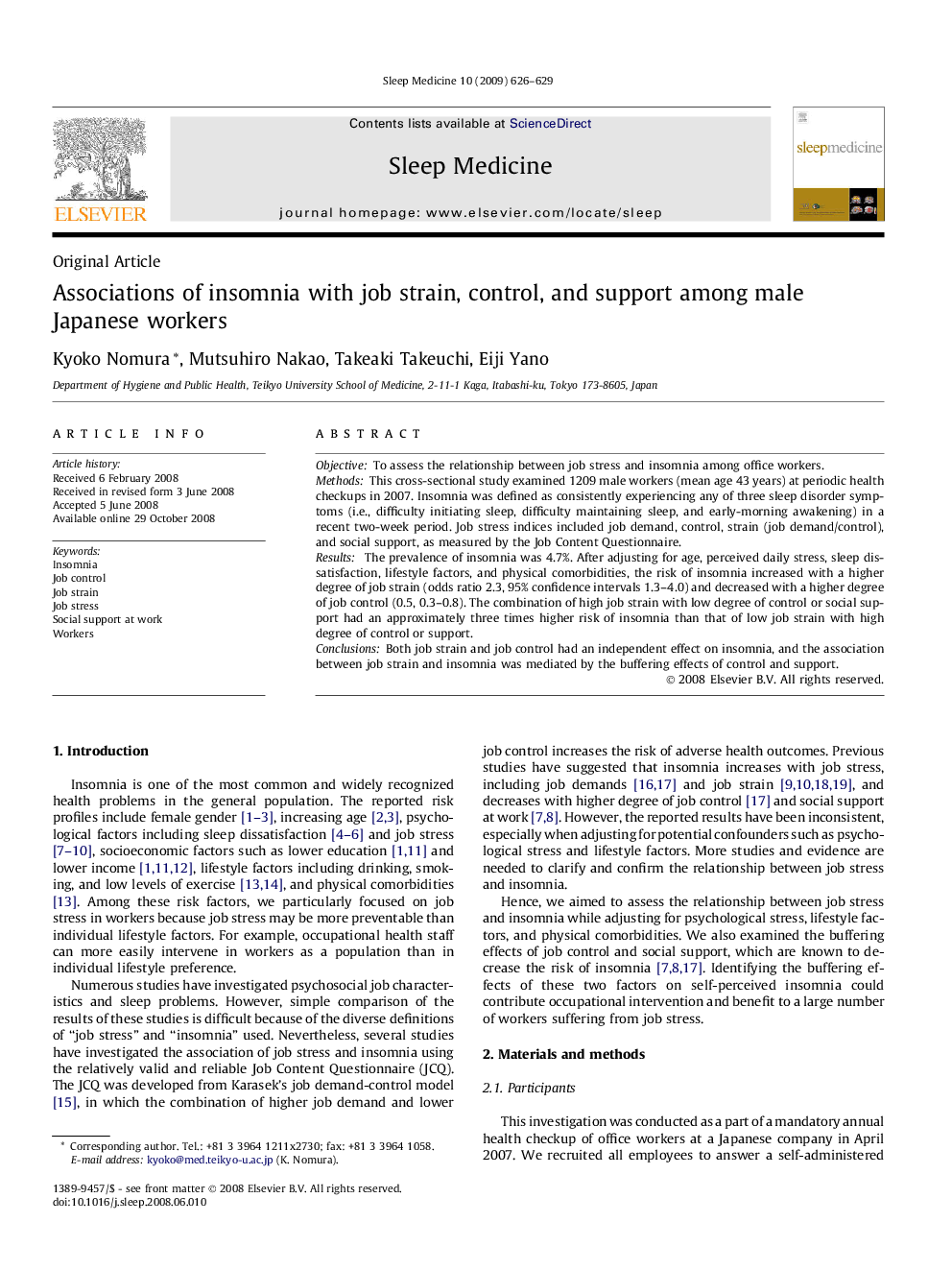| Article ID | Journal | Published Year | Pages | File Type |
|---|---|---|---|---|
| 3177587 | Sleep Medicine | 2009 | 4 Pages |
ObjectiveTo assess the relationship between job stress and insomnia among office workers.MethodsThis cross-sectional study examined 1209 male workers (mean age 43 years) at periodic health checkups in 2007. Insomnia was defined as consistently experiencing any of three sleep disorder symptoms (i.e., difficulty initiating sleep, difficulty maintaining sleep, and early-morning awakening) in a recent two-week period. Job stress indices included job demand, control, strain (job demand/control), and social support, as measured by the Job Content Questionnaire.ResultsThe prevalence of insomnia was 4.7%. After adjusting for age, perceived daily stress, sleep dissatisfaction, lifestyle factors, and physical comorbidities, the risk of insomnia increased with a higher degree of job strain (odds ratio 2.3, 95% confidence intervals 1.3–4.0) and decreased with a higher degree of job control (0.5, 0.3–0.8). The combination of high job strain with low degree of control or social support had an approximately three times higher risk of insomnia than that of low job strain with high degree of control or support.ConclusionsBoth job strain and job control had an independent effect on insomnia, and the association between job strain and insomnia was mediated by the buffering effects of control and support.
